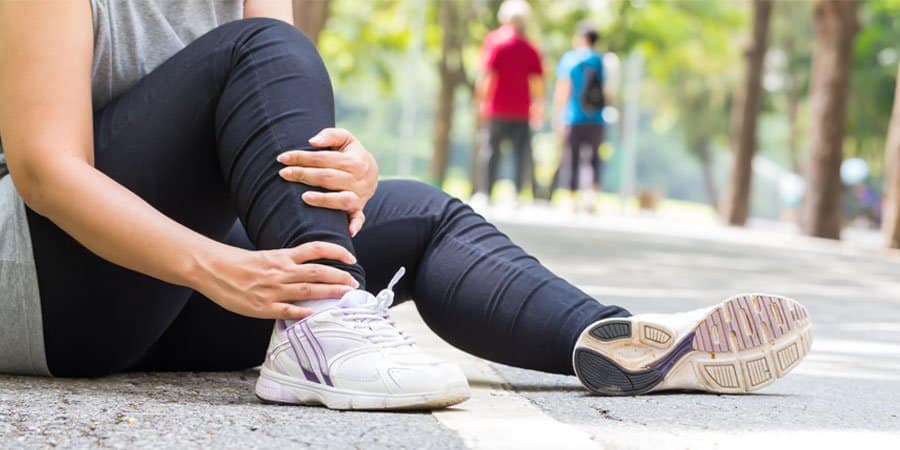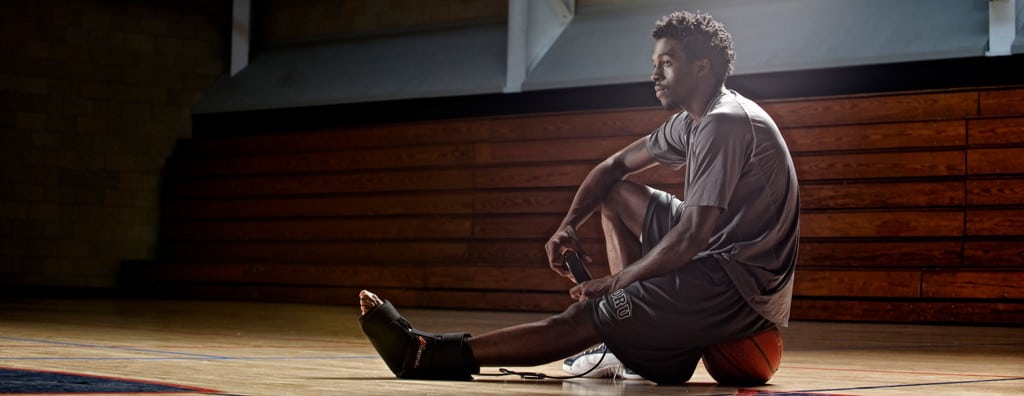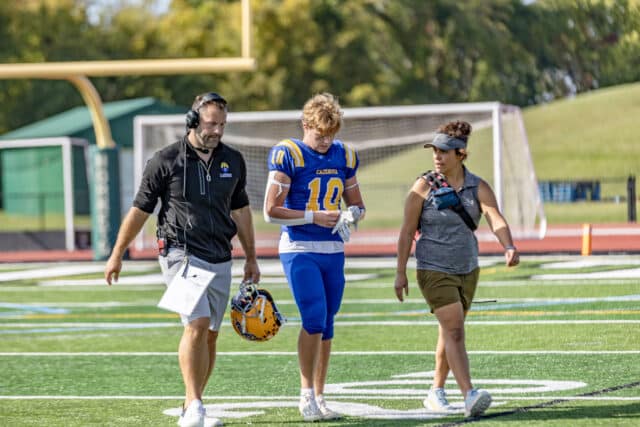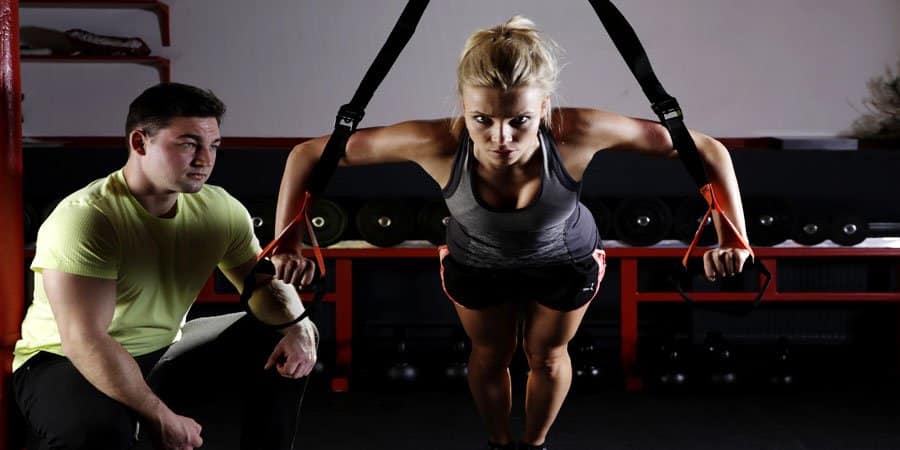ACL surgery is physically taxing for athletes, but it’s also critical to prioritize mental health during ACL surgical recovery.
When an athlete tears their ACL, it’s overwhelming. It’s nerve wracking to navigate how this type of injury will impact an athletic career. But while talking to your doctor about physical concerns, do not neglect precautions for your mental health during ACL surgery recovery.
The athletes that have experienced ACL surgery during their careers agree: mental recovery can be more challenging than the physical recovery. Many athletes are used to physical pain. But, the long journey of ACL recovery can cause feelings of isolation, abandonment, depression, and low self-esteem.
About ACL Tears and Surgery for Athletes
Each year between 100,000-200,000 athletes tear their anterior cruciate ligament, or their ACL. The ACL is the ligament that attaches the anteromedial tibial plateau to the posteromedial lateral femoral condyle of the knee. This ligament prevents the tibia from moving forward and prevents knee hyperextension. When this ligament tears, not only is it painful but if not treated could cause further injury and knee instability.
Symptoms of a torn ACL include pain on the outside or back of knee, swelling, limited range of motion, and overall discomfort. There are two different types of treatments for this type of injury.
In some cases, surgery isn’t required, and the patient will be required to wear a brace and attend physical therapy. But, in other cases, surgical reconstruction is required to stabilize the knee. Those who have undergone surgery are at risk for mental health repercussions such as depression.
Mental Health During ACL Surgical Recovery
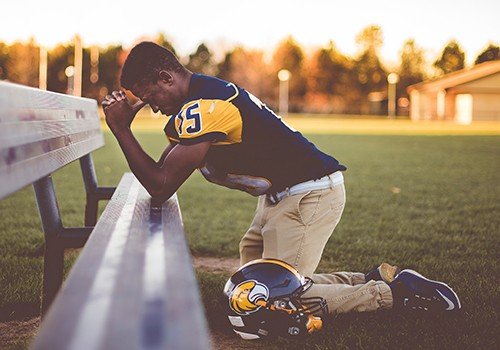
Do not undermine the psychological impact of athletes recovering from ACL surgery. With any surgery, it’s common for the patient to feel sad or vulnerable. Pairing those feelings with the physical limitations after living an active lifestyle, it’s easy to get depressed, anxious, or nervous.
Kinesiophobia, or fear of reinjury, prevents some athletes from ever returning to their sport. For others, it causes anxiety or apprehension when starting to go back to workouts or practice. Mood changes are also common for those recovering from ACL surgery. In fact, 42% of those overcoming ACL reconstruction develop a depressive disorder.
Most athletes are used to a stream of endorphins due to workouts. However, after injury and after surgery, it’s common to slide into depression as workouts end.
Heightened emotions after injury are normal, but there are a few things recovering athletes need to pay attention to seek support or treatment. Sadness, irritation, isolation, disengaged, loss of motivation, anger, and changes in sleep or appetite are indicators that it’s time to talk to your doctor about the psychological effects of ACL recovery.
How to overcome depression after ACL surgery?
For those who believe their recovery is affecting their emotional and mental health, it’s important to act. A counselor or therapist can provide tools and resources to help during this time of recovery. There are also online support groups to help those in recovery cope with new emotions and the post-surgery effects.
Many athletes gain confidence from sports and enjoy the community aspect of a team. But during recovery, it’s easy to feel isolated. During recovery, athletes should keep in close contact with friends and teammates to still be connected to their community.
How Athletes Typically Approach Recovery
There are three psychological responses that determine how athletes approach recovery.
Cognitive Appraisal.
This references how the athlete thinks about the injury and how it aligns with their goals. In most cases, taking time away from the sport for surgery and recovery interrupts their day-to-day lives thus keeps them from accomplishing their goals.
Emotional Response.
After suffering from a torn ACL, athletes feel the emotional toll of what the injury means to them personally. Aside from pain or feeling weak, knowing the tear could have long-term effects on their future and has affected their present-day career. The emotional response is usually connected to the changes in mood associated with this type of recovery.
Behavioral Response.
What is done in response to the injury is extremely important and impacts mental health during recovery. Those self-isolating or behaving abnormally can improve their disposition by noticing these behavioral responses.
Mentally Prepare for ACL Recovery
An ACL injury can be devastating. With psychological pressure of wanting to be on the field, or the emotional response from the injury and treatment, it is a lot to process. But athletes can take an active role in their recovery.
Former soccer player Jordan Angeli started the ACL Club to connect athletes struggling with recovery. This organization has a masterclass specifically created for athletes to address their mental health concerns and obstacles during the adjustment of recovery process. While surgery and physical therapy can help with the physical side of recovery, the ACL Club aids the psychological side.
Prior to surgery, make sure you have the proper support in place for the recovery journey. Prior to surgery, tell teammates, family, and close friends know that visits would be helpful. Connect with support groups online and research therapists in your insurance network just as a precaution.
Have an ACL Injury? Check out our Knee Wraps for better recovery!
Citations
Larwa J, Stoy C, Chafetz RS, Boniello M, Franklin C. Stiff landings, core stability, and dynamic knee valgus: a systematic review on documented anterior cruciate ligament ruptures in male and female athletes. Int J Environ Res Public Health. 2021;18(7):3826. doi:10.3390/ijerph18073826
Wu HH, Liu M, Dines JS, Kelly JD, Garcia GH. Depression and psychiatric disease associated with outcomes after anterior cruciate ligament reconstruction. World J Orthop. 2016;7(11):709-717. doi:10.5312/wjo.v7.i11.709

